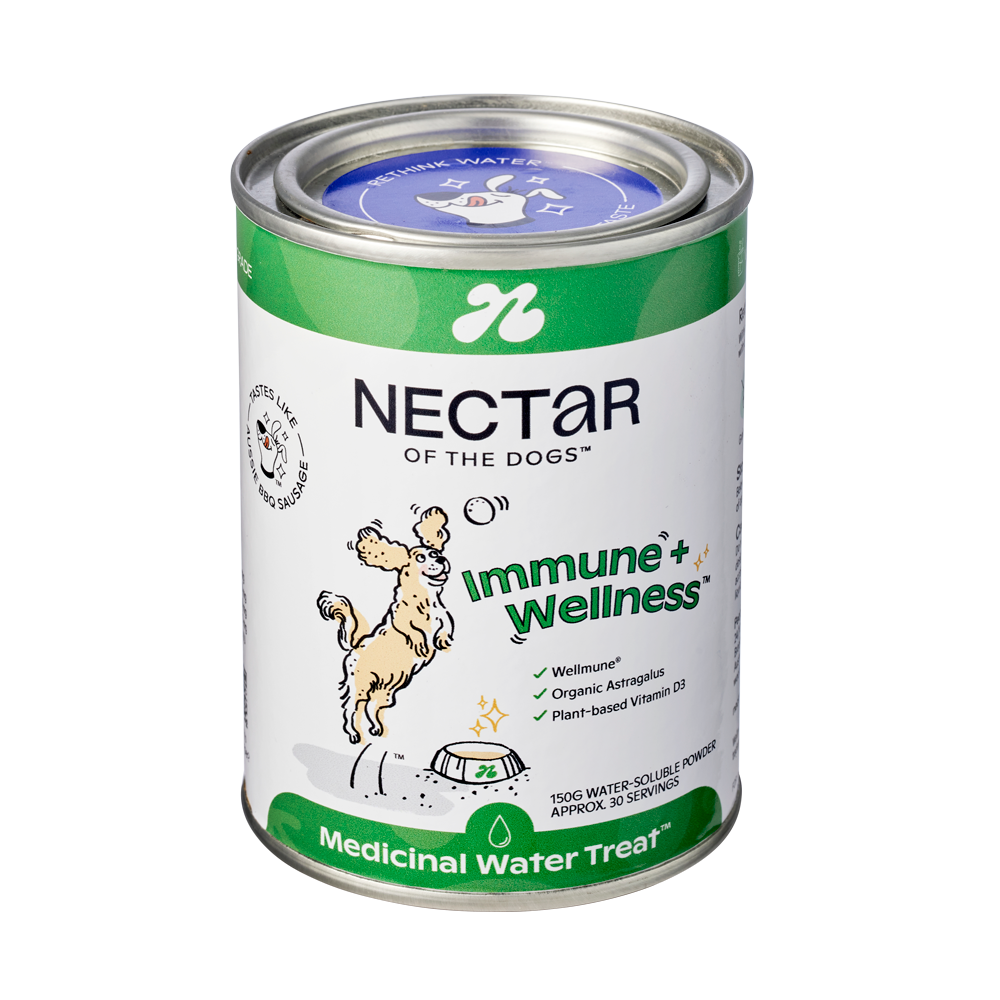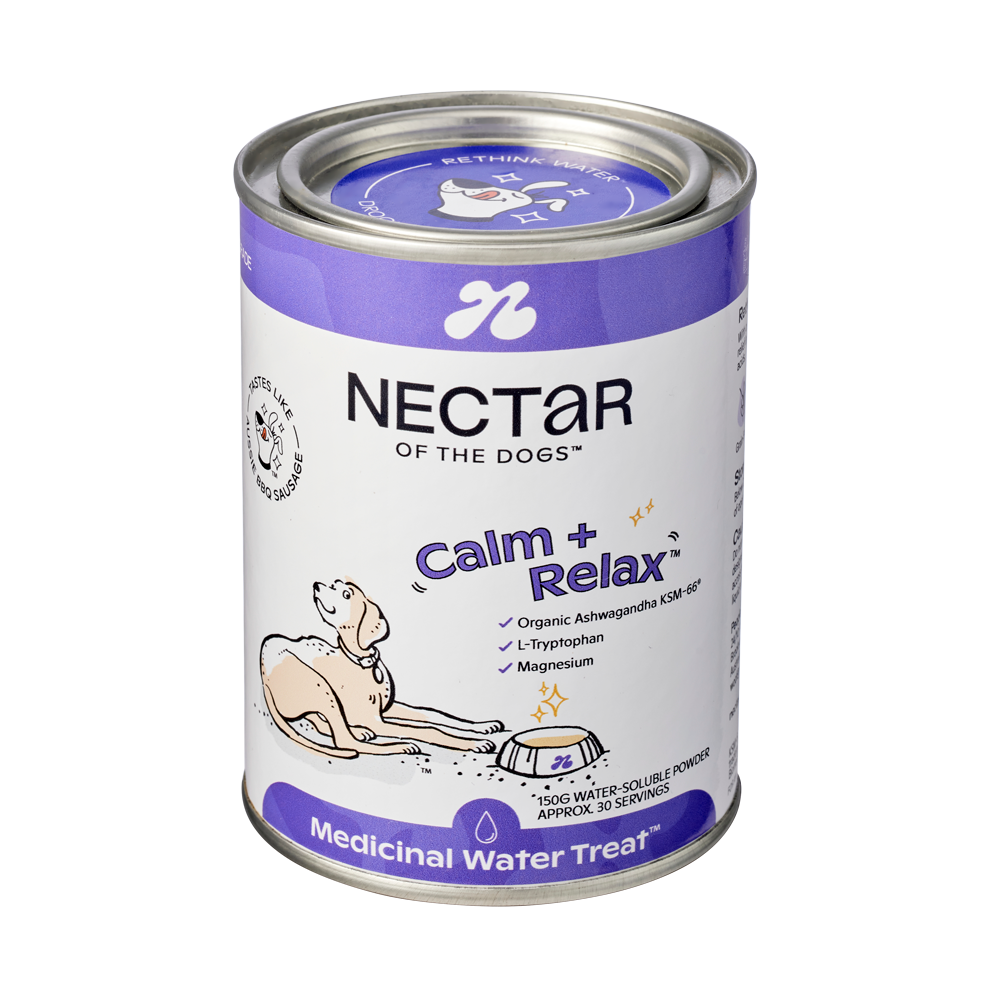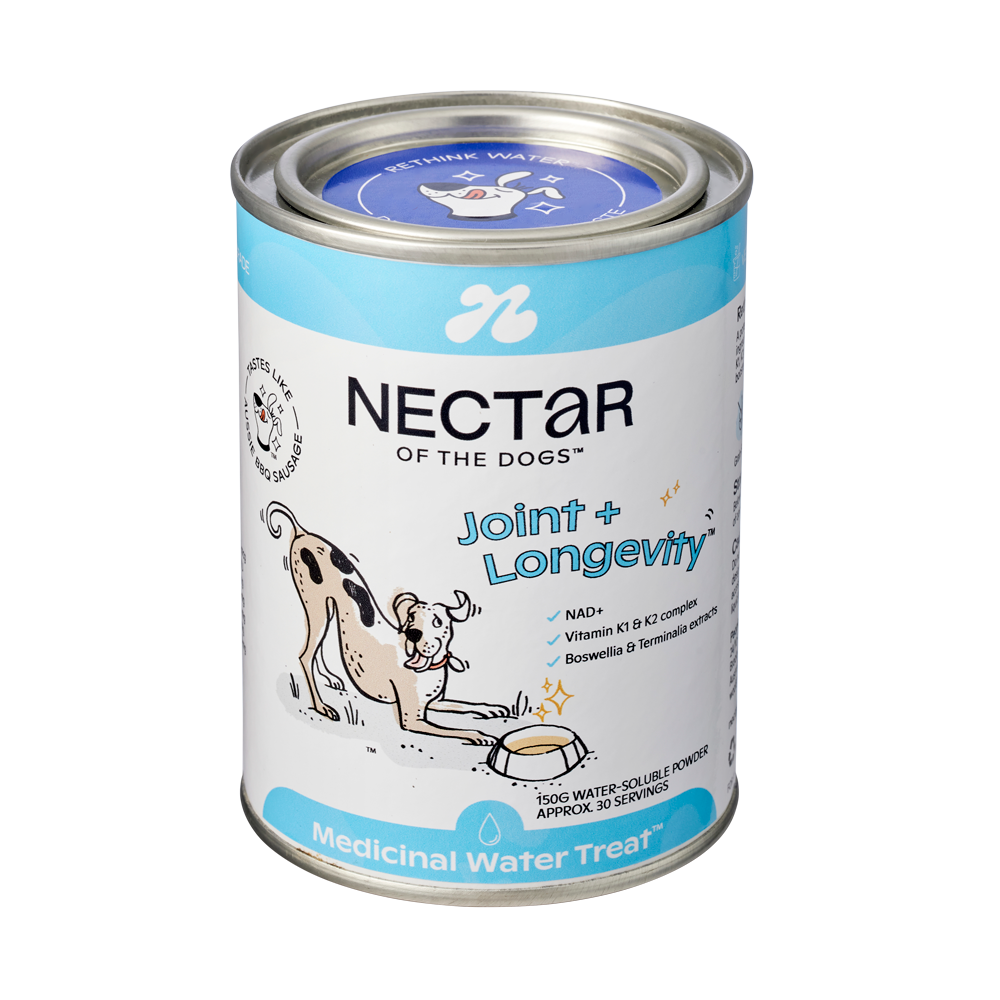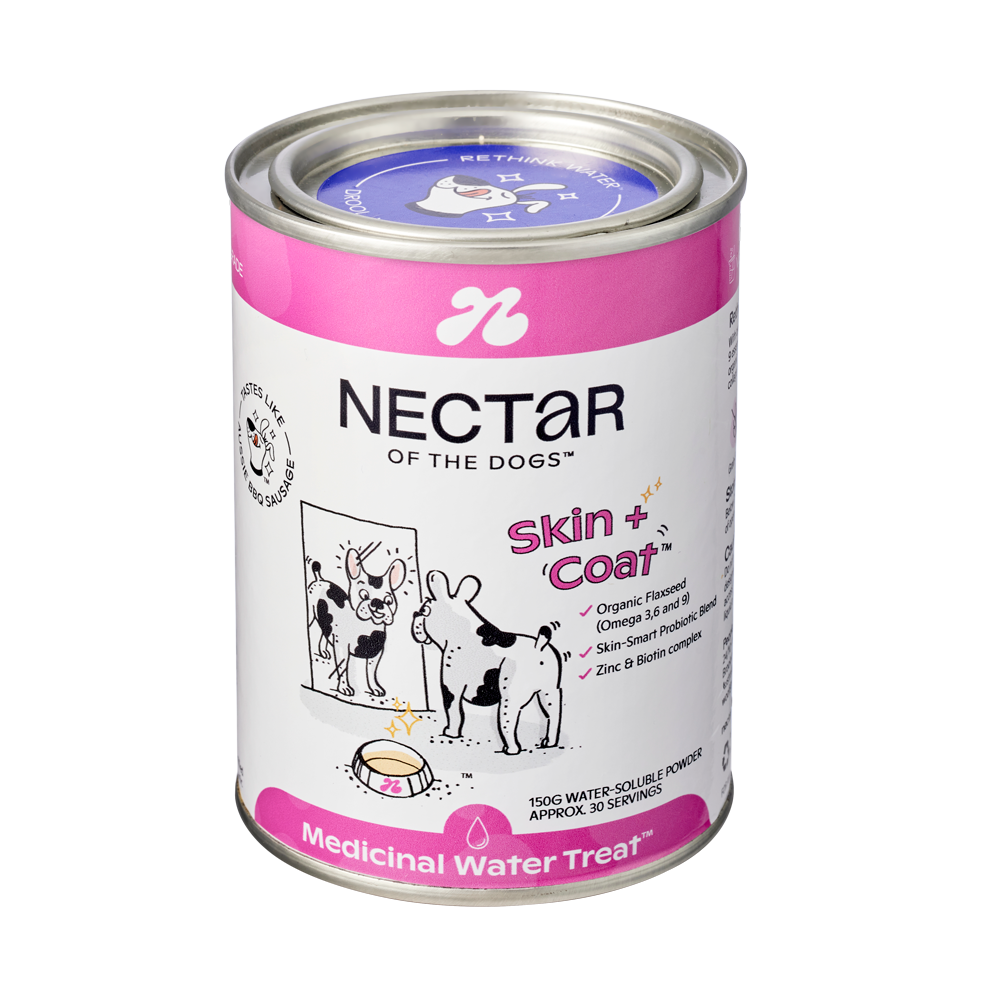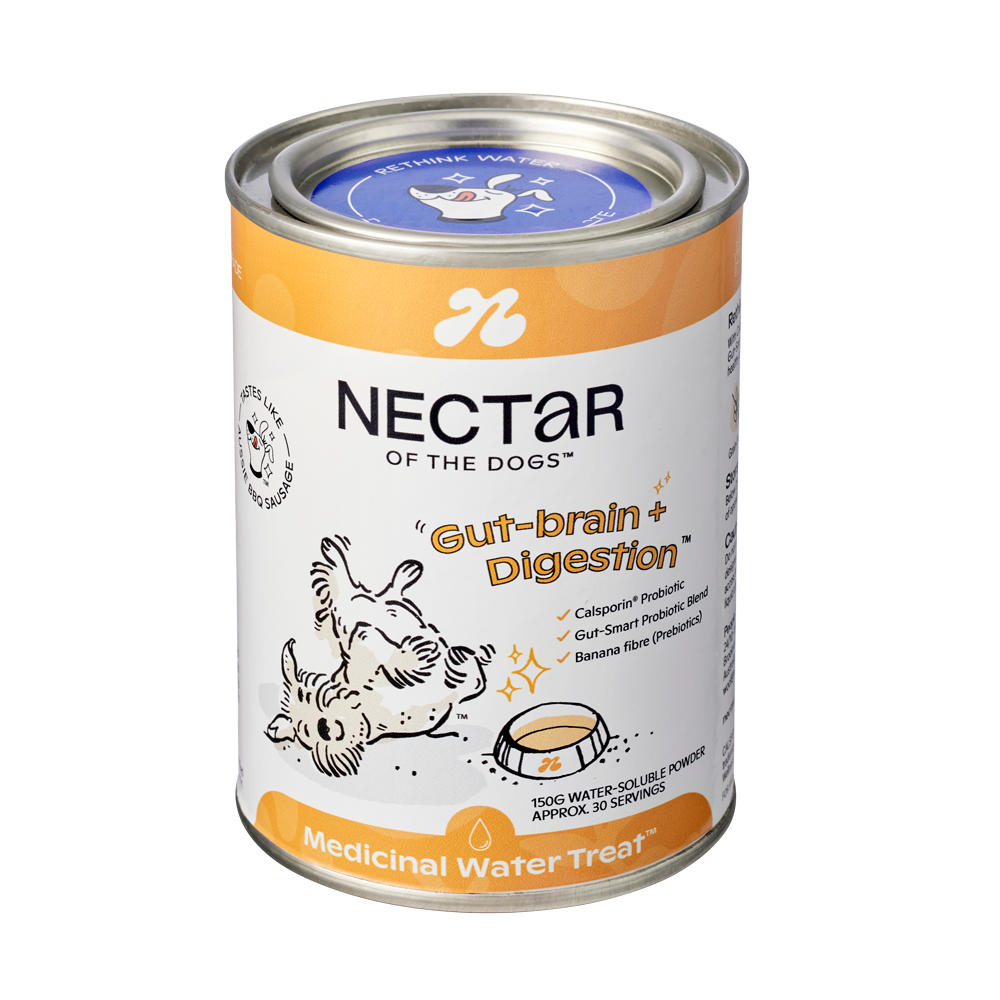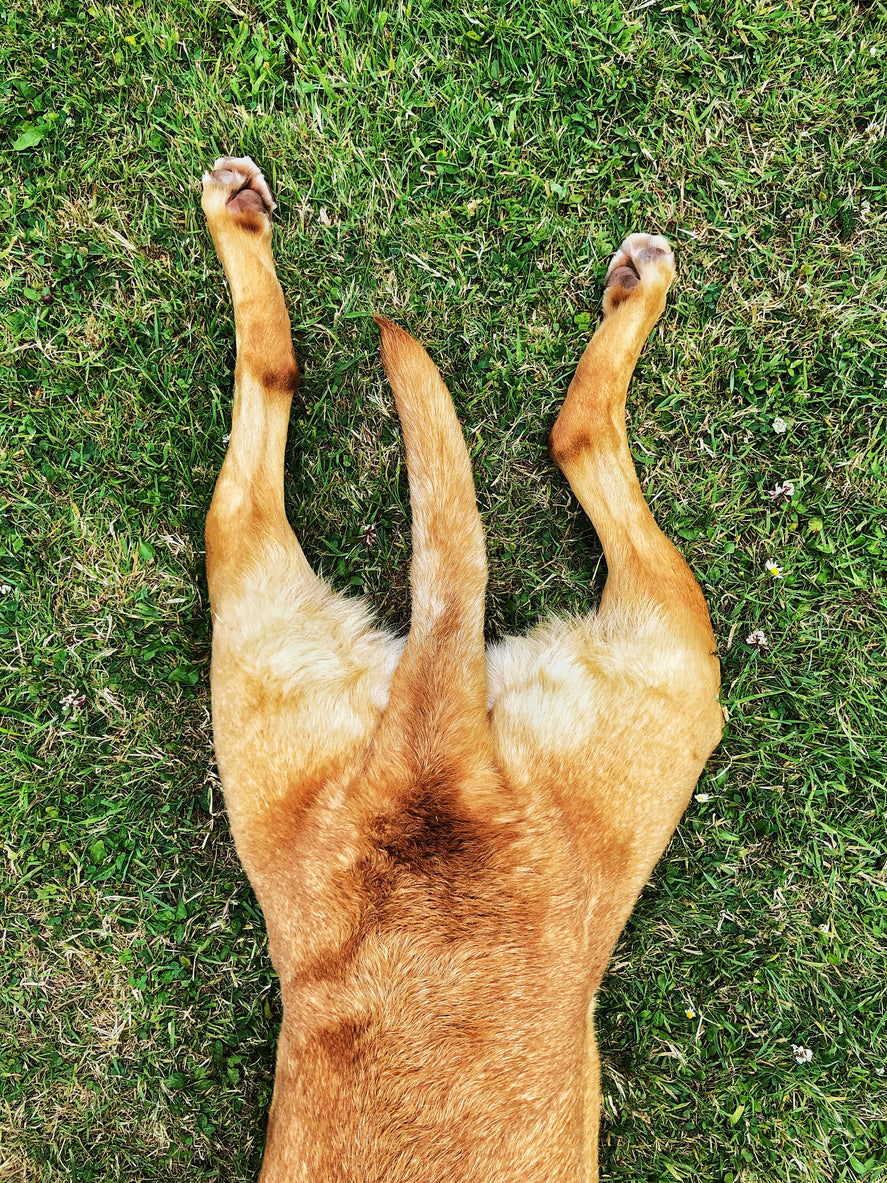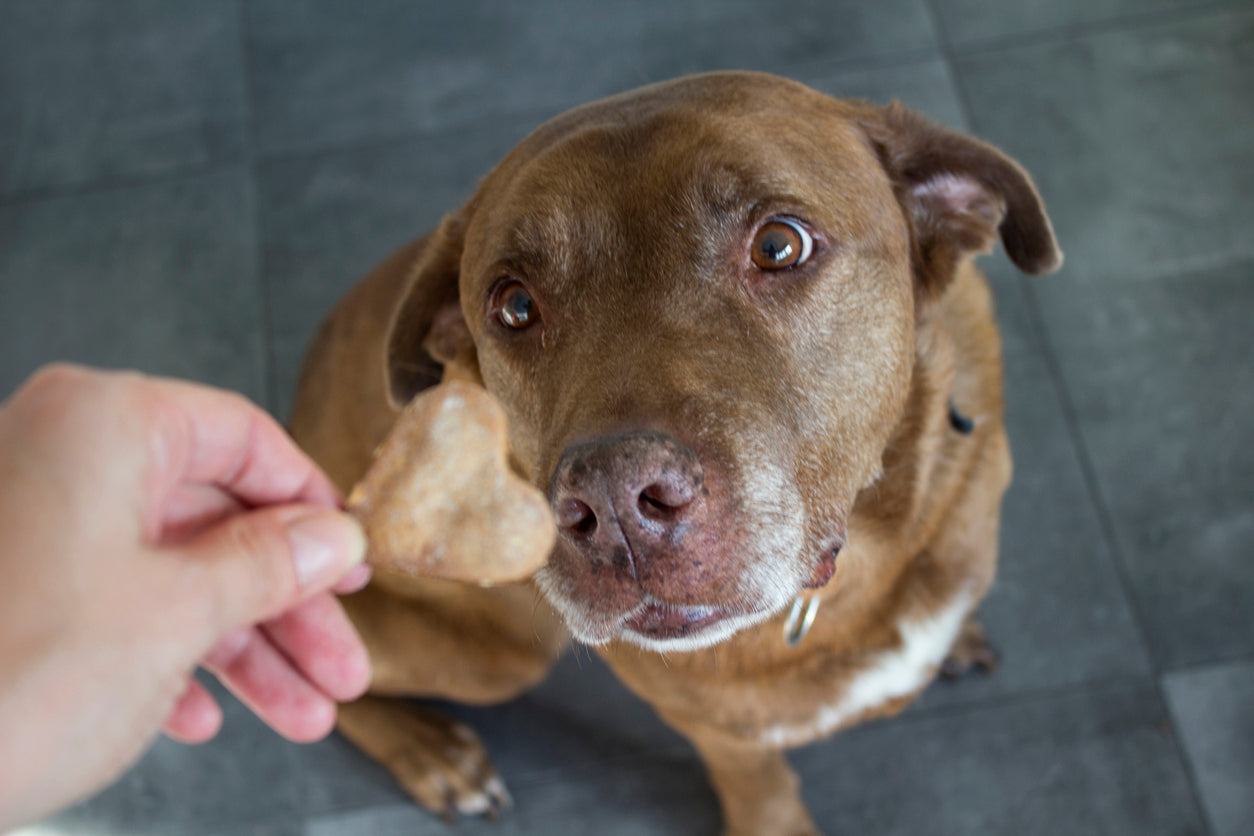Understanding Arthritis in Dogs: Symptoms, Treatments and Prevention
Arthritis in dogs cannot be cured and can be a very uncomfortable condition for your beloved pet, but with the right care and treatment plan, it can be managed and its progression can be delayed.
Learn more about arthritis in dogs, the signs and symptoms to look out for, and how you can provide proper care and prevention to keep your pup healthy and active.
What is Arthritis in Dogs?
Arthritis is a degenerative joint disease that affects around 25% of dogs in Australia, causing pain and stiffness in the joints. It is caused by the breakdown of cartilage in the joints and can lead to inflammation, swelling, and degeneration of the joint to extreme levels if not treated appropriately.
There are two primary types of arthritis in dogs – Osteoarthritis and Autoimmune Arthritis (eg. Rheumatoid Arthritis) . Osteoarthritis is the most common form and involves the wearing away of the joints which can be a natural part of ageing. Meanwhile, Rheumatoid Arthritis is an autoimmune condition where the lining of the joints is attacked by the dog’s immune system mistakenly.
These conditions should first be appropriately diagnosed by your dog’s regular veterinarian before a treatment plan can be put together. Nutraceuticals / Joint Supplements like Nectar can assist manage the pain associated with Osteoarthritis.
Rheumatoid Arthritis is more challenging to address and will usually require immunosuppressive drugs administered by your vet. Usually, Rheumatoid is treated with “1 or more immunosuppressive agents, often a glucocorticoid in addition to a second immunosuppressive agent such as cyclosporine, azathioprine, mycophenolate mofetil, or leflunomide.”

Signs and Symptoms of Arthritis in Dogs
10 common signs and symptoms of arthritis in dogs include:
- Limping
- A decrease in activity level
- Difficulty rising or climbing stairs
- Reluctance to jump
- Reluctance to go on walks
- Difficulty standing up first thing in the morning
- Joint stiffness after resting periods
- Decreased appetite
- Weight gain or weight loss due to reduced activity levels
- Licking at the affected joint(s)
If your dog is exhibiting these symptoms, it might be time to take it to the vet to get checked out. Initially, discovering whether your dog is suffering from osteoarthritis or rheumatoid can be important, as treatments vary.
Causes of Arthritis in dogs
Although any dogs can develop arthritis, some are more predisposed to this condition than others and their environment and lifestyle may also play a role. Here are some of the known risk factors which are important, so you can keep an eye on your pup:
- Age (especially senior years) - as a result of wear and tear on the joints
- Obesity - putting excess stress on joints
- High activity levels with repetitive stress on the joints
- Large and giant dogs
- Specific dog breeds (eg. German Shepherd, Rottweilers, Labradors)
- Injury & trauma - cruciate tear, hip or elbow dysplasia
- Poor conformation
- Genetics
Types of Treatment for Canine Arthritis
Arthritis is a progressive disease which can be managed and slowed down but not cured. Easing the pain and improving your dog’s quality of life is usually the goal and requires a multimodal approach which would include:
- Avoiding activities that cause pain (chasing balls or other ballistic movements)
- Stick to controlled exercise (lead walking)
- Providing a healthy and supportive nutrition plan
- Anti-inflammatory medications
- Quality dog supplements that contain natural ingredients to reduce inflammation and swelling
- Physical therapy such as massage, acupuncture or laser/light therapy .
- For more severe cases, steroid, NSAID medications or joint injections may be recommended by your veterinarian.
As a first step, try to limit anything that is making them uncomfortable like long walks or crazy play dates with friends. If their joints are inflamed, they will find these kinds of heavy activities quite painful.
Instead of pounding the pavement or park, why not take them swimming which is better suited to dogs with joint complaints. Swimming provides an ideal respite for the joints, whilst keeping them active and healthy.
Once you’ve stopped aggravating the arthritis, you can then work out the best treatment options for your dog. This might include natural remedies, a change in diet or more serious medical help. Either way, it’s always recommended to go to your vet and let them assist.

Tips on Prevention and Best Natural Ingredients For Canine Arthritis
Prevention is also key when it comes to canine arthritis, and luckily there are lots of natural remedies that can work well to support your pup. You can help your dog avoid joint pain by maintaining a healthy weight and providing regular light exercise, as well as supplementing with natural ingredients such as omega-3 fish oils or glucosamine and chondroitin supplements.
In addition, doing regular vet checks and joint tests for signs of inflammation and pain can help catch the disease early before it progresses.
Some of the best natural ingredients for arthritis in dogs are:
- Vit K1&2 for bone and immune health
- Terminalia Chebula to reduce joint pain
- Glucosamine to stimulate collagen and cartilage production
- Chondroitin to help with cushioning the joints
- Fish oil (rich in EPA and DHA) to help reduce anti-inflammation
- Boswellia serrata (Indian frankincense) to reduce inflammation in the joints
- Turmeric to reduce inflammation in the body
Ways to Help Reduce Pain and Symptoms of Arthritis in Dogs
As a pet owner, there are several measures you can take at home to help your dog manage the pain and symptoms of canine arthritis. Monitoring your pet's activity levels, ensuring easy access to outdoor areas, providing ramps in lieu of stairs and using orthopaedic beds to ease the load on the joints are all helpful strategies to reduce discomfort.
Additionally, proper nutrition is essential for maintaining healthy cartilage and joints. Feeding an anti-inflammatory diet with Omega-3 fatty acids may help reduce pain, and supplementation with anti-inflammatory ingredients has been proven to support dogs with arthritis.